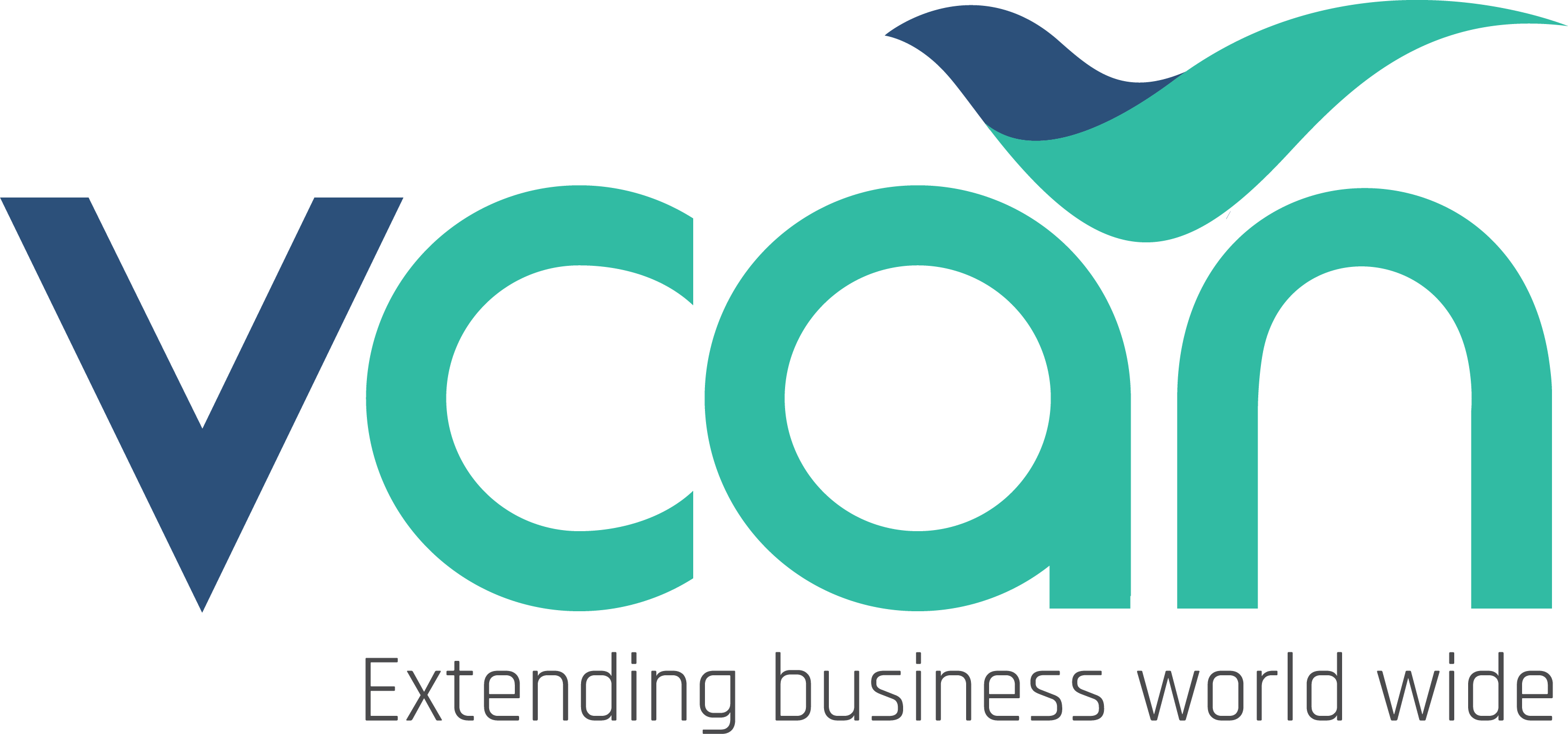Seamless Web Applications Provider
Website development is the process of creating, designing, and building a website to be accessible on the internet. It involves various stages, from conceptualization and planning to coding and deployment. The goal is to create a functional, user-friendly, and visually appealing website that meets the objectives of the organization or individual commissioning it.

Web development services we offer
We provide a wide range of services. At VCAN Technologies, we dig deep and understand our client’s objectives and unique business challenges to provide the best-suited web app solution.

Custom Application Development
Creating bespoke web applications from scratch, tailored to the client’s unique requirements, business processes, and user preferences along with portal setup, and offering maintenance, support, and up-gradation.

Portal Development
Portal development refers to the process of creating web-based portals that serve as centralized platforms for users to access information, services, and resources related to a specific domain or organization. VCAN Technologies provides portals that have a single point of entry, offering a personalized and interactive experience to users based on their roles and preferences. It involves designing and developing secure, user-friendly, and scalable web portals with diverse functionalities.

E-commerce Web Development
Creating robust and scalable e-commerce platforms with features like product catalogs, shopping carts, payment gateways, and order processing.

Website Development & Maintenance
Website development and maintenance are essential for businesses and organizations to establish a strong online presence, engage with their audience, and achieve their objectives in the digital landscape. Regularly updating and optimizing a website ensures that it remains relevant, secure, and user-friendly, contributing to its overall success and effectiveness.

SaaS Products
SaaS (Software as a Service) products are cloud-based software solutions that are accessed and used through the internet on a subscription basis. Unlike traditional software that needs to be installed and maintained on individual devices, SaaS products are centrally hosted and managed by the provider, making them easily accessible from any device with an internet connection. we at VCAN Technologies help users to access SaaS applications through web browsers, and the software is typically licensed on a pay-as-you-go or subscription model.

Open Source Web Development & Revamp
Open source web development refers to the process of creating and modifying web applications using freely available and accessible source code. Open source projects allow developers to access, modify, and distribute the code openly, fostering collaboration and community-driven improvements.

Web Application Support & Maintenance
Web application support and maintenance are critical aspects of ensuring that a web application continues to function smoothly, securely, and efficiently after its initial development and deployment. These ongoing processes involve addressing issues, implementing updates, and providing continuous assistance to users to ensure the application’s optimal performance.
Helping Businesses & professionals to create, deploy, and maintain web-based applications.
Why web application development is mandatory in current affair?
In today’s fast-paced and interconnected world, web application development is a fundamental aspect of modern businesses, organizations, and individuals. It empowers entities to thrive in the digital era, stay competitive, and deliver seamless and innovative solutions to a global audience.

Global Connectivity
Web applications allow businesses and individuals to connect with a global audience, breaking down geographical barriers and expanding their reach.

Accessible Anywhere, Anytime
Web applications can be accessed from any device with an internet connection, enabling users to interact with services and information on the go.

Enhanced User Experience
Well-designed web applications offer intuitive interfaces, fast loading times, and seamless navigation, enhancing user experience and satisfaction.

Business Efficiency
Web applications streamline processes, automate tasks, and centralize data, leading to increased productivity and efficiency in various industries.

Cost-Effectiveness
Web applications eliminate the need for complex software installations and updates, reducing IT infrastructure costs for businesses and end-users.

Real-Time Collaboration
Web applications facilitate real-time collaboration among teams and individuals, fostering efficient communication and teamwork.

Scalability and Flexibility
Web applications can easily scale to accommodate a growing number of users and adapt to changing business needs.

Data Security
Web application development focuses on implementing robust security measures, safeguarding sensitive data and protecting against cyber threats.

Competitive Advantage
Having a well-developed web application sets businesses apart from competitors and positions them as modern, customer-centric, and technologically advanced.

Responsive Design
Web applications can be designed to be responsive, providing consistent user experiences across different devices, including desktops, tablets, and smartphones.

Customer Engagement and Interaction
Web applications enable businesses to engage with their customers directly, fostering personalized experiences and building strong relationships.

24/7 Availability
Web applications operate 24/7, allowing businesses to provide continuous services and support to their customers worldwide.

Data Analytics and Insights
Web applications can collect valuable user data, enabling businesses to analyze customer behavior and preferences to make informed decisions.

Digital Transformation
Web application development is a key aspect of digital transformation, enabling businesses to adapt to evolving market trends and customer expectations.

Integration with Third-Party Services
Web applications can integrate with various third-party services, expanding functionality and offering a more comprehensive user experience.
Unleash Your Potential Today!
Welcome to our website, where endless possibilities await! Whether you’re an aspiring entrepreneur, a creative artist, or a lifelong learner, we invite you to take the first step toward your dreams. Explore our services, start learning, join our community and get started today! Empower Your Future. Embrace the Possibilities. Act Now!
Contact Us
Do you have a question that we can help to answer? Our team is ready to assist you.
Schedule a Demo
FAQS
What is an SSL certificate?
An SSL certificate is a digital certificate that authenticates the identity of a website and encrypts the data transmitted between a user's web browser and the server. It ensures that sensitive information, such as login credentials, credit card details, and personal data, remains secure during transmission.
What is TLS, and how does it differ from SSL?
TLS (Transport Layer Security) is the successor of SSL (Secure Socket Layer). While SSL was widely used in the past, it has been deprecated due to security vulnerabilities, and TLS is now the standard protocol used for secure communication over the internet. The term "SSL" is often used colloquially to refer to both SSL and TLS certificates.
How does SSL/TLS encryption work?
SSL/TLS encryption uses a combination of asymmetric and symmetric encryption. When a user connects to a website with an SSL/TLS certificate (HTTPS), the browser and server establish a secure connection through a process called the TLS Handshake. During this handshake, the server presents its SSL/TLS certificate to the browser, which contains the server's public key. The browser then generates a session key (symmetric key) to encrypt the data exchanged between the client and server during the session.
Why is an SSL/TLS certificate essential for websites?
An SSL/TLS certificate is crucial for websites because it ensures the security, privacy, and integrity of data exchanged between the website and its visitors. It prevents unauthorized interception of sensitive information and protects against man-in-the-middle attacks, enhancing the trustworthiness of the website.
How do I know if a website has an SSL/TLS certificate?
When a website has an SSL/TLS certificate, it is indicated by "HTTPS" in the website's URL and a padlock icon in the browser's address bar. Modern browsers also display warnings when users try to visit non-secure (HTTP) websites that collect sensitive data.
How do I obtain an SSL/TLS certificate for my website?
To obtain an SSL/TLS certificate, you need to purchase one from a reputable Certificate Authority (CA) or use a CA that offers free certificates. You will need to generate a Certificate Signing Request (CSR) on your web server, submit it to the CA during the certificate application process, verify your domain ownership, and then receive and install the issued certificate on your server.
What types of SSL/TLS certificates are available?
There are several types of SSL/TLS certificates, including Domain Validated (DV), Organization Validated (OV), Extended Validation (EV), Wildcard, and Multi-Domain (SAN) certificates. Each type varies in the level of validation and the number of domains or subdomains it can secure.
How long is the validity period of an SSL/TLS certificate?
The validity period of an SSL/TLS certificate typically ranges from one to three years. Certificate authorities issue certificates with different validity periods, and website owners must renew their certificates before they expire to maintain secure communication.
Are SSL/TLS certificates necessary for all websites, even small ones?
Yes, SSL/TLS certificates are necessary for all websites, regardless of their size. Even small websites that don't handle sensitive data can benefit from SSL/TLS encryption. It improves security, boosts SEO rankings, and helps build trust with visitors.
Can SSL/TLS certificates be used for email encryption?
No, SSL/TLS certificates are specifically designed for securing web communication. To secure email communication, you would need S/MIME (Secure/Multipurpose Internet Mail Extensions) certificates, which are specifically designed for email encryption and authentication.


